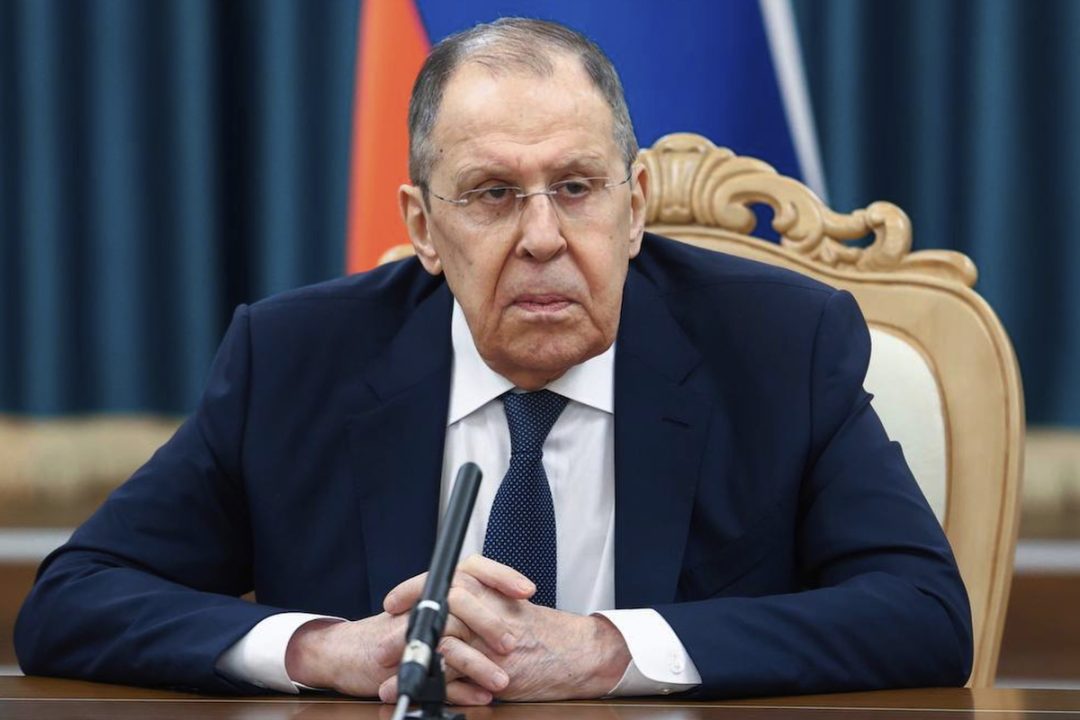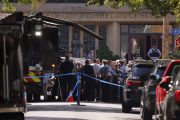
Russian officials rejected President Donald Trump’s recent ultimatum that they either reach a ceasefire deal with Ukraine in 50 days or get hit with secondary tariffs.
Russia’s state-run TASS news agency announced Wednesday:
Russian Deputy Foreign Minister Sergey Ryabkov stressed that any attempts to present demands to Moscow are inadmissible and Russia wants the US and NATO to treat its position with the utmost seriousness.
Russian Foreign Minister Sergey Lavrov also chimed in, taking a jab at Trump’s perceived indecisiveness:
Certainly, we would like to understand what is behind this statement about 50 days. Earlier, there were also the deadlines of 24 hours and of 100 days, we’ve seen it all and really would like to understand the reasoning of the US president.
On Monday, Trump announced during an Oval Office meeting with North Atlantic Treaty Organization (NATO) Secretary General Mark Rutte that the Kremlin has 50 days to make peace with its neighbor or face “secondary tariffs” of 100 percent. The tariffs, should they be implemented, would be leveled against countries trading with Moscow. They would especially target Russia’s energy exports, which find their way even to Western countries such as France.
Will This Hurt Russia?
The Kremlin isn’t too worried about new potential tariffs, according to TASS reporting. Their experts expect some “decline as a result but do not anticipate their complete suspension and forecast the emergence of roundabout delivery routes.”
The Russians have consistently downplayed the effects Western-leveled sanctions have had on their economy, pointing to their shift in trade policies, specifically its trade increase with China, India, Turkey, and the United Arab Emirates.
Western sources tell a different story, however. The Center for Strategic and International Studies (CSIS) reported that “the sanctions imposed by Coalition nations have unequivocally impaired Russia’s economic capabilities.” Moreover:
The breadth and depth of these sanctions have been unprecedented. As of January 2024, over 16,000 restrictions have been placed on Russian individuals and entities, making Russia the most sanctioned country in the world. Approximately 70 percent of assets within the Russian banking system are now under sanctions, crippling its financial sector. Key figures in the Russian government, military officials, and oligarchs have faced asset freezes and travel bans, further limiting Russia’s economic maneuverability. Between these frozen assets and the impact of the oil price cap, the Coalition has already deprived Russia of more than $500 billion that it could have put toward its war effort.
Trump also announced an arrangement with NATO that will keep the pipeline of American weapons to Ukraine flowing. The U.S. will sell weapons to European NATO members, which will in turn give them to Ukraine to use against Moscow.
The Russians seem to be speaking out of both sides of their mouth as to what effect this will have. Academy of Military Sciences member Sergey Sudakov claimed it wouldn’t be much, saying, “This will basically not affect the situation on the battlefield in any way.” But Igor Shkrobtak, senior researcher at the Russian Academy of Sciences’ Institute for U.S. and Canadian Studies, said this may indeed worsen matters. As reported by TASS:
Despite the possibility that Kiev may receive new arms in addition to those supplied under earlier agreements, the situation on the battlefield is unlikely to change dramatically, although the possibility of an escalation is not ruled out.
Trump’s Changing Positions
The Russians correctly point out that Trump has been all over the map regarding his positions as he attempts to end the Russia-Ukraine war. Trump has vacillated between who started the war, which of the two leaders is more difficult to deal with, whether or not Trump was even going to continue trying to mediate peace, and whether Ukraine will continue receiving weapons. The Trump administration’s positions have been dizzying.
The Russians, however, have consistently said they want to reach a permanent peace — but not until the “root causes” of the conflict are eliminated. A series of proposals have been put forward by the United States and Ukraine, but none sufficient for the Kremlin to agree to a complete ceasefire. Trump has taken this to mean that what Russian leader Vladimir Putin says is “meaningless.” Undoubtedly, many in his circle are telling the president that Putin is stringing him along so the Russians can continue pummeling Ukraine and taking territory.
The Russians would argue the root causes have not been eliminated. That includes the possibility of Ukraine not joining NATO, ending the persecution of ethnic Russians in the eastern portion of Ukraine, and “de-Nazifying” Ukraine. Every one of these Russian concerns are rooted in truth. But the question of whether both parties are operating in good faith remains.





